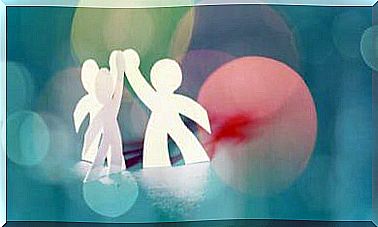How Does A Psychological Disorder Develop?

We are used to talking about different mental disorders based on the symptoms that characterize them, but not so much on how they develop, although it is the same or more important. Thus, a psychological disorder does not arise out of nowhere, nor are its symptoms random.
On the contrary, any disorder forms a puzzle in which its elements are logical and understandable. In this way, we can ask ourselves, What happens for a psychological disorder to develop? What predispositions must there be in our mind? Is there a cause-effect relationship? Here we will see.
The origin of the psychological disorder
The psychological disorder, or mental illness, supposes an alteration of the behavior and the thought of a person. This disorder causes that, in some cases, it is not possible to lead a normal life or the need for constant treatment to be able to live “normally”.

We speak of a disorder when the problem limits the life of the person suffering from it and becomes a maladaptive and disruptive syndrome. There are different types of disorders, but the most common are:
- Schizophrenia : involves a serious departure from reality, with the presence of delusions and hallucinations
- Autism : more common in boys than girls, it is characterized by a developmental deficit that disables the individual to communicate, imagine or plan
- Bipolar disorder : It alternates periods of severe depression with others of mania, excitement and euphoria, causing great suffering to the person
- Personality disorder : It is a set of disturbances that affect the emotional, affective and social dimension. The best known are antisocial personality disorder and borderline personality disorder.
- Eating disorder : These are those that range from eating more or less than normal, to ingesting things that are not food, to performing exaggerated compensatory behaviors
- Attention deficit hyperactivity disorder (ADHD) : Common in children is characterized by difficulty concentrating and controlling their behavior.
- Panic : A very limiting disorder, as it is the physical manifestation of fear (palpitations, shortness of breath).
- Anxiety disorder : Basically encompasses 3 types. The first, obsessive-compulsive disorder (OCD); the second, post-traumatic stress disorder (PTSD); and, the third, generalized anxiety disorder (GAD).
The development of psychological disorder

After seeing the most common disorders, we ask ourselves: What happens in our mind for the disorder to appear? Why do some people develop these types of disorders and others do not?
Trauma
The first idea of the development of a psychological disorder is trauma. A traumatic event experienced in childhood (mistreatment, violence, abuse) can leave sequelae, which last and affect adult life, if not throughout life.
There is no specific age for the onset of trauma, what we do know is that it can lead to eating disorders, panic or anxiety disorders or others. As Sigmund Freud already said:
In this sense, we owe a lot to psychoanalysis. It represented a revolution in the way of understanding disorders and made psychology reconsider about the importance that the schemes that we have learned and internalized at an early age play in us. Thus, currently, perspectives as recent as NLP (Neuroliguistic Programming) are based on the existence of these schemes to carry out interventions.
The genetic
Some disorders are explained by genetic causes. This does not mean that if someone in our family has had schizophrenia or depression we will develop it ourselves. But there is a better chance that this is the case. In particular, it can happen more frequently in disorders such as autism, ADHD, bipolar disorder, depression, and schizophrenia.
Environmental factors

There are some environmental factors that can trigger the development of a psychological disorder. For example, the death of a loved one can trigger, through the stress it generates, a psychotic attack. Likewise, going through a divorce or drug abuse.
In young people, social or cultural expectations, what is expected of them, can cause disorders such as eating. The constant publicity that dictates a canon of corporal perfection and beauty causes that this problem is aggravated and that the incidence has increased and that the age range of risk has been widened.
As we have seen, there are several factors that help to develop a psychological disorder. There are others such as certain infections, brain damage or birth injuries that can promote the development of this type of disorder.









